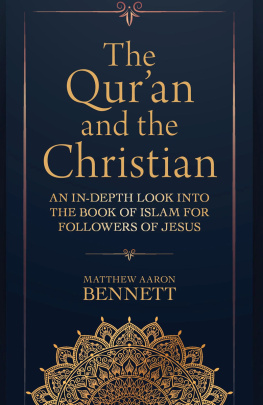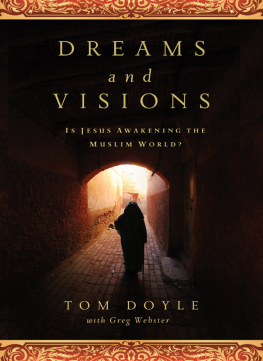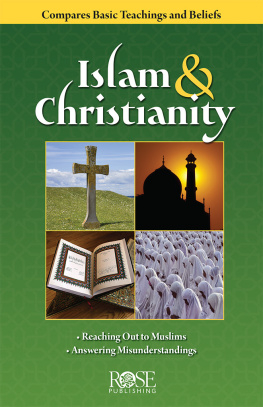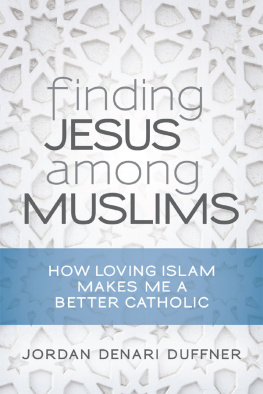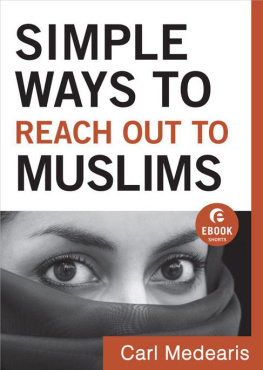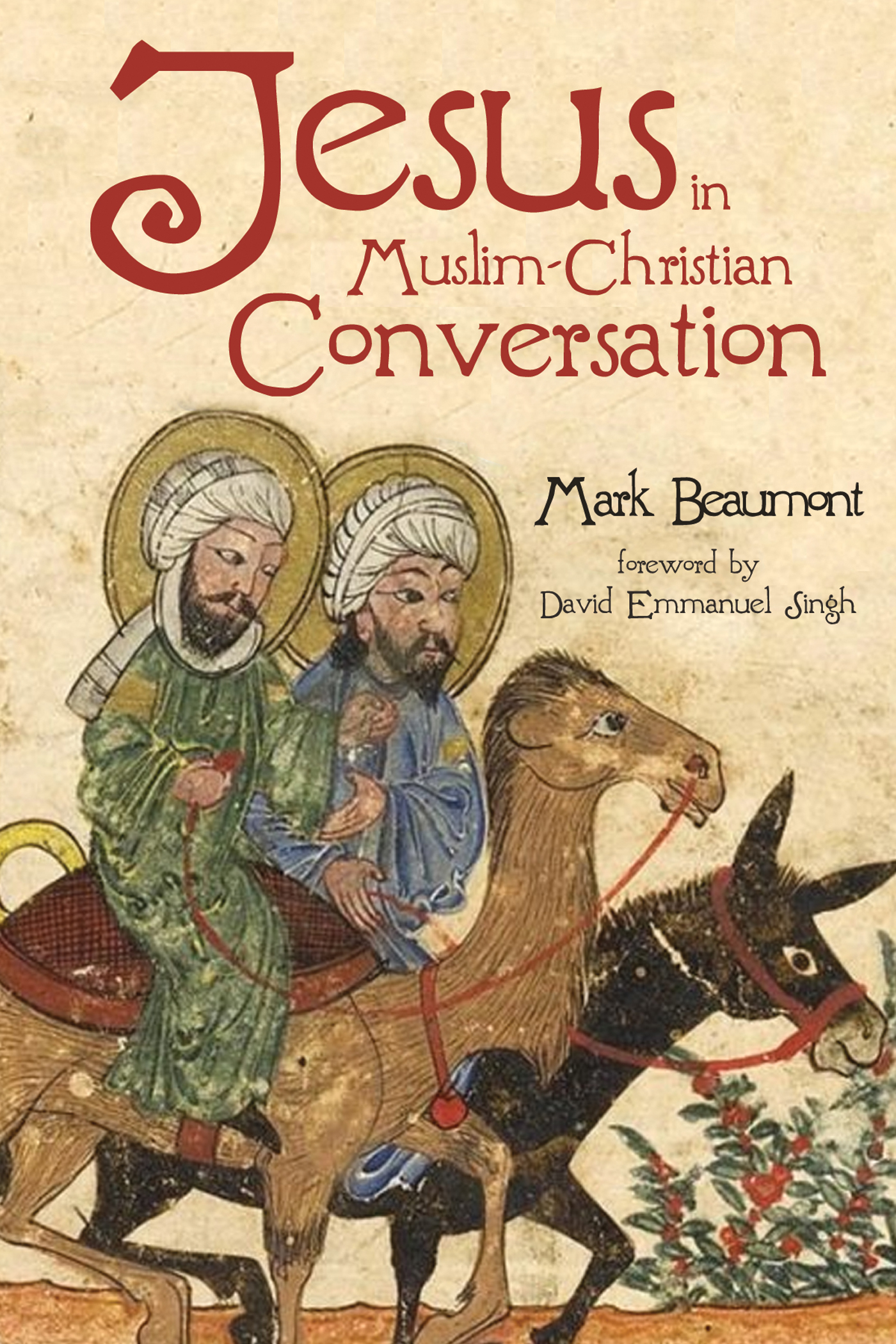Jesus in Muslim-Christian Conversation
Mark Beaumont

one
Born of Mary
I brahim gets the conversation started on the belief shared by Muslims and Christians that Jesus was conceived in Mary when she was still a virgin. Ibrahim presents the teaching of the Quran, the sayings of the Prophet Muhammad, and the interpretation in Quran commentary. Paul follows up with the presentation of the virginal conception in the Gospels, the apostolic writings, and later interpretation. The theme of the miraculous conception of Jesus is followed by discussions of the birth stories in the Quran and the Gospels, and the quranic story of Jesus speaking as a newborn child. The beginning of Jesus life occupies a very significant place in the Quran, and seems to be more important than stories about his adult work. Paul points out the way that legends about the birth of Jesus and his speaking as an infant from some of the apocryphal gospels have resurfaced in the Quran. He challenges the Muslim view that the Quran was revealed directly from heaven without any influence from previous writing.
The final section of the chapter is an exchange of views between Ibrahim and Paul on the significance of the virginal conception of Jesus for Muslims and Christians. They both acknowledge that some Muslims and Christians no longer believe in the miraculous conception without the involvement of a human father, but they seek to maintain the traditional account. Paul argues that since some of the apocryphal gospels portray Mary as perpetually a virgin even after the birth of Jesus that Muhammad heard such stories and reacted against them. Thus, the Quran criticizes Christians for elevating Mary to a divine status by reporting Jesus denying that he told people to worship him and his mother Mary. Ibrahim agrees that Christians are being warned not to give to Mary what belongs to God. They both discuss the tradition of offering prayer to Mary, especially for healing. While Paul thinks this is misplaced, Ibrahim makes allowance for appeals to the saints who have walked closely with God as long as believers do not ascribe divinity to them.
The Conception of Jesus in the Quran
Ibrahim: The story of Mary and the conception of Jesus is told in Q3:4547:
The angels said, Mary, God announces the news of a word from Him: his name is the messiah, Jesus, the son of Mary: he will be honored in this world and in the next life, and he will be among those who are near to God. He will speak to people as a young child and as an adult and will be among those who are righteous. She said, My Lord, how can I have a son when no man has touched me? He said, In this way God creates what He wills. When He has decided to do something He simply says, Be, and it exists.
The conception of Jesus by the creative power of God without the involvement of a human father is clearly presented in Q3:4547. Marys shock at hearing the angelic announcement of a boy to be conceived in her womb is vividly shown in her protestation of her sexual purity, in her absolute certainty that she has never become intimate with a man. The Quran interprets the momentous event of the coming of Jesus into the world as a sign of Gods decision to create in a way that is unexpected, unusual, and unprecedented. Prophets come and go by Gods will but they are conceived by normal means through the sexual union of a father and mother. This prophet is different.
Mary is addressed by name, and the son conceived in her is to carry her name. The fact that this woman is honored by her name being embedded in the life of the prophet who comes from her makes Mary unique among women mentioned in the Quran. Of the four book-bearing prophets, Abraham, Moses, David, and Jesus, who came to their people with revealed books, only Jesus is connected so closely to his mother. Although Abrahams wife is part of the narrative of the first Muslim to bring a revealed text, she is not named. The families of Moses and David, who both brought books to the children of Israel, are not mentioned by name.
The narrative of the angelic visit to Mary does not introduce the background to her story, so her own family life and circumstances are left in the shadows of the dazzling brightness of the messengers of God arriving suddenly in her private experience. There is no need to know where she was and who was with her, for the reality of the encounter need only be personal to her. This family narrative does come in Q19:1617, where it is said that Mary withdrew from her family to a place in the east to screen herself from them. In that place of separation, she received a visit from an angel who appeared to Mary in the likeness of a well-built man. Thus, the encounter is a very private one with no witnesses among her family. But her sense of family honor is just as vivid in this version of the story as in Q3:4547. In Q19:20, when the messenger announces the conception of a pure son in her, she protests her virginity, I have not been unchaste. The conception took place by Gods ordination (v. 21), and Mary went away with him to a distant place (v. 22). The sense of Mary being led away from her family is very much at the center of this narrative, emphasizing the depth of Marys commitment to the will of God. How dedicated she was to the divine call on her life, to the extent that she was willing to put her future well-being as a woman at risk by consenting to becoming pregnant outside the normal conventions of her society. She represents all those who hear the call of God to submit to his plan without holding back out of fear of human rejection.
Marys submission to Gods decision that Jesus be conceived in her without normal human means is told twice in the Quran, showing the importance of this woman in the history of the Creators dealings with humankind. She symbolizes all other female believers who have the courage to obey the message that God sends despite the consequences for the disrespect in which they might be held in their family life. The honor of God comes before the honor given by human relationships. Mary obeys God rather than her parents.
The sharpness of this choice of obedience to God is seen in the narrative of Marys return to her family after giving birth to Jesus in 19:2728. She returned to her people with him in her arms. They said, Mary, you have done something unheard of. Sister of Aaron, your father was not an evil man nor was your mother unchaste. The full force of Marys breaking of moral laws according to the rules of her culture is heard in the language of her family. The good moral character of her father and mother has been put under suspicion by Marys reckless behavior. The implication of the outburst is that Mary would be thought by the surrounding community to have inherited evil actions from her parents. People in the neighborhood might interpret Marys rebellion either as copying her mothers bad behavior or as fulfilling a curse put upon her in punishment for her fathers wrongdoing.
According to some traditions, the choice of Mary to carry the miraculous son is linked to the prayer of her mother Anna, who asked God to protect Mary and her son from the attack of Satan. As a result, neither Mary nor Jesus were pierced by Satan at birth, something which all children experience.
Quran commentators have emphasized the power of God in the conception of Jesus beyond normal means. Few have assumed the involvement of a human father. Sayyid Ahmed Khan (d. 1898) thought that Mary had sexual intercourse with her husband, and Ghulam Ahmed Parwez (d. 1886) held that since the angelic announcement of the conception of John to Zechariah in Q3:40 is identical to that given to Mary in Q3:47, then Jesus is the fruit of the union of Joseph and Mary in the context of their married state.






